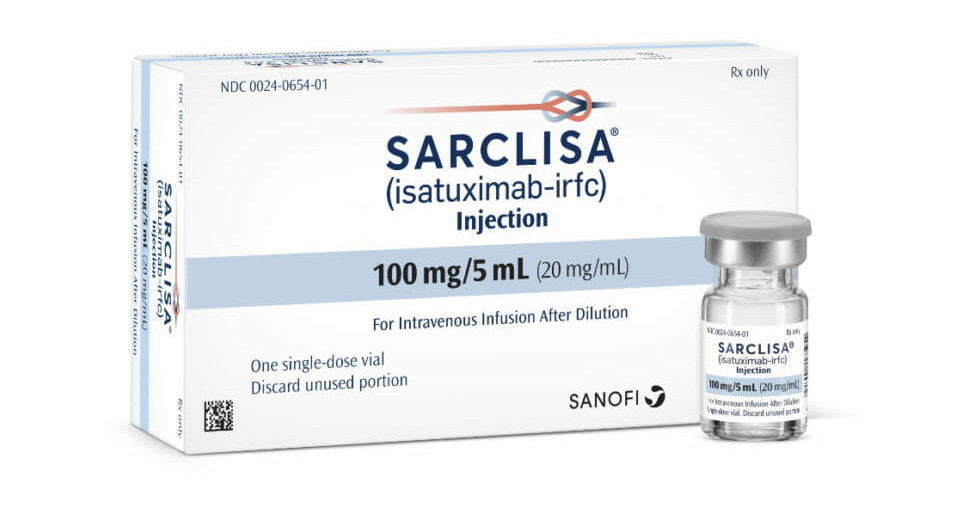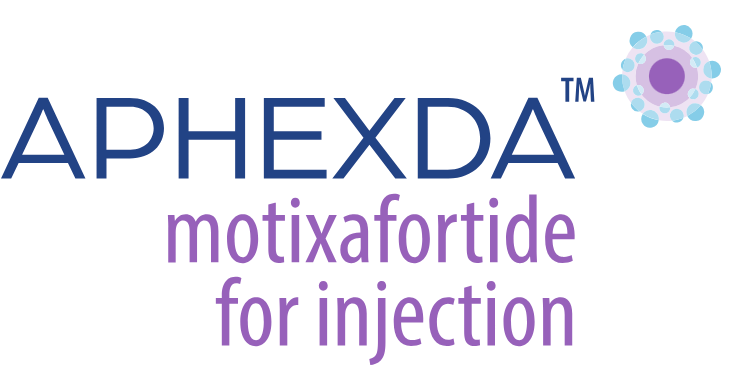Sarclisa (isatuximab) vs Aphexda (motixafortide)
Sarclisa (isatuximab) vs Aphexda (motixafortide)
Sarclisa (isatuximab) is a monoclonal antibody that targets a specific protein on the surface of multiple myeloma cells, used in combination with other drugs to treat adults with multiple myeloma who have received at least one prior therapy. Aphexda (motixafortide), on the other hand, is a CXCR4 antagonist designed to enhance the stem cell mobilization process in preparation for autologous stem cell transplantation in patients with multiple myeloma and non-Hodgkin's lymphoma. When deciding between Sarclisa and Aphexda, it is important to consider the specific indication and treatment goal, as Sarclisa is directly involved in treating the cancer itself, while Aphexda is used to facilitate a procedure that is part of the treatment regimen for certain hematological conditions.
Difference between Sarclisa and Aphexda
| Metric | Sarclisa (isatuximab) | Aphexda (motixafortide) |
|---|---|---|
| Generic name | Isatuximab | Motixafortide |
| Indications | Multiple myeloma | Stem cell mobilization for autologous hematopoietic stem cell transplantation in multiple myeloma and non-Hodgkin lymphoma patients |
| Mechanism of action | CD38-directed cytolytic antibody | CXCR4 antagonist |
| Brand names | Sarclisa | Aphexda |
| Administrative route | Intravenous | Subcutaneous |
| Side effects | Infusion reactions, neutropenia, diarrhea, pneumonia, etc. | Not well-defined due to being in clinical trial phases |
| Contraindications | Hypersensitivity to isatuximab or any of its excipients | Not well-defined due to being in clinical trial phases |
| Drug class | Monoclonal antibody | Peptide CXCR4 antagonist |
| Manufacturer | Sanofi | BioLineRx |
Efficacy
Efficacy of Sarclisa (Isatuximab) in Treating Multiple Myeloma
Isatuximab, marketed under the brand name Sarclisa, is a monoclonal antibody that is specifically designed to target and bind to a protein called CD38, which is highly expressed on the surface of multiple myeloma cells. The efficacy of Sarclisa in the treatment of multiple myeloma was primarily demonstrated in a clinical trial known as ICARIA-MM, which was a pivotal Phase 3 study. In this study, Sarclisa was added to pomalidomide and dexamethasone (a standard treatment regimen) and compared with pomalidomide and dexamethasone alone. The results showed that the addition of Sarclisa significantly improved progression-free survival (PFS), which is the length of time during and after treatment that a patient lives with the disease without it getting worse. Patients who received Sarclisa in combination with pomalidomide and dexamethasone had a median PFS of 11.53 months compared to 6.47 months for those who received pomalidomide and dexamethasone alone.
Efficacy of Aphexda (Motixafortide) in Treating Multiple Myeloma
Motixafortide, known by the brand name Aphexda, is a novel CXCR4 antagonist that has been investigated for its potential to enhance the mobilization of hematopoietic stem cells for autologous transplantation in patients with multiple myeloma. While Aphexda is not primarily a treatment for multiple myeloma itself, it is used in a supportive role to improve the outcomes of stem cell transplantation, which is a common therapeutic approach in the management of multiple myeloma. The efficacy of Aphexda was evaluated in a Phase 3 clinical trial, where it was used in combination with granulocyte colony-stimulating factor (G-CSF). The study demonstrated that Aphexda significantly increased the proportion of patients who were able to collect the target number of stem cells in fewer apheresis sessions compared to G-CSF alone. This enhancement in stem cell mobilization is important because it can potentially improve the success rate of subsequent stem cell transplants in multiple myeloma patients.
It is important to note that while these medications show promise in the treatment and management of multiple myeloma, they are part of a larger therapeutic regimen. The choice of treatment depends on various factors, including the stage of the disease, previous treatments, patient health status, and specific genetic markers. Both Sarclisa and Aphexda are used in conjunction with other medications and treatments to improve patient outcomes.
As with any medication, the efficacy of Sarclisa and Aphexda can vary from patient to patient, and they are not without potential side effects. Healthcare providers consider the overall benefits and risks when prescribing these treatments. For the most current information regarding the efficacy and safety of Sarclisa and Aphexda, healthcare professionals refer to the latest clinical trial data and prescribing information.
Regulatory Agency Approvals
Sarclisa
-
European Medical Agency (EMA), European Union

-
Food and Drug Administration (FDA), USA

-
Health Canada

Aphexda
-
Food and Drug Administration (FDA), USA

Access Sarclisa or Aphexda today
If Sarclisa or Aphexda are not approved or available in your country (e.g. due to supply issues), you can access them via Everyone.org.
How it works

Make an enquiry
Choose the medicine you want to buy, answer a couple of questions, and upload your prescription to speed things up. We’ll get back to you within 24 hours.


Make an enquiry
Choose the medicine you want to buy, answer a couple of questions, and upload your prescription to speed things up. We’ll get back to you within 24 hours.


Breeze through the paperwork
We'll guide you through the required documents for importing unapproved medicine, ensuring you have all the necessary information.


Get a personalized quote
We’ll prepare a quote for you, including medicine costs and any shipping, administrative, or import fees that may apply.


Receive your medicine
Accept the quote and we’ll handle the rest - sourcing and safely delivering your medicine.

Some text on this page has been automatically generated. Speak to your physician before you start a new treatment or medication.
Let's talk
If you have any questions, call us or send us a message through WhatsApp or email:
Contact us




